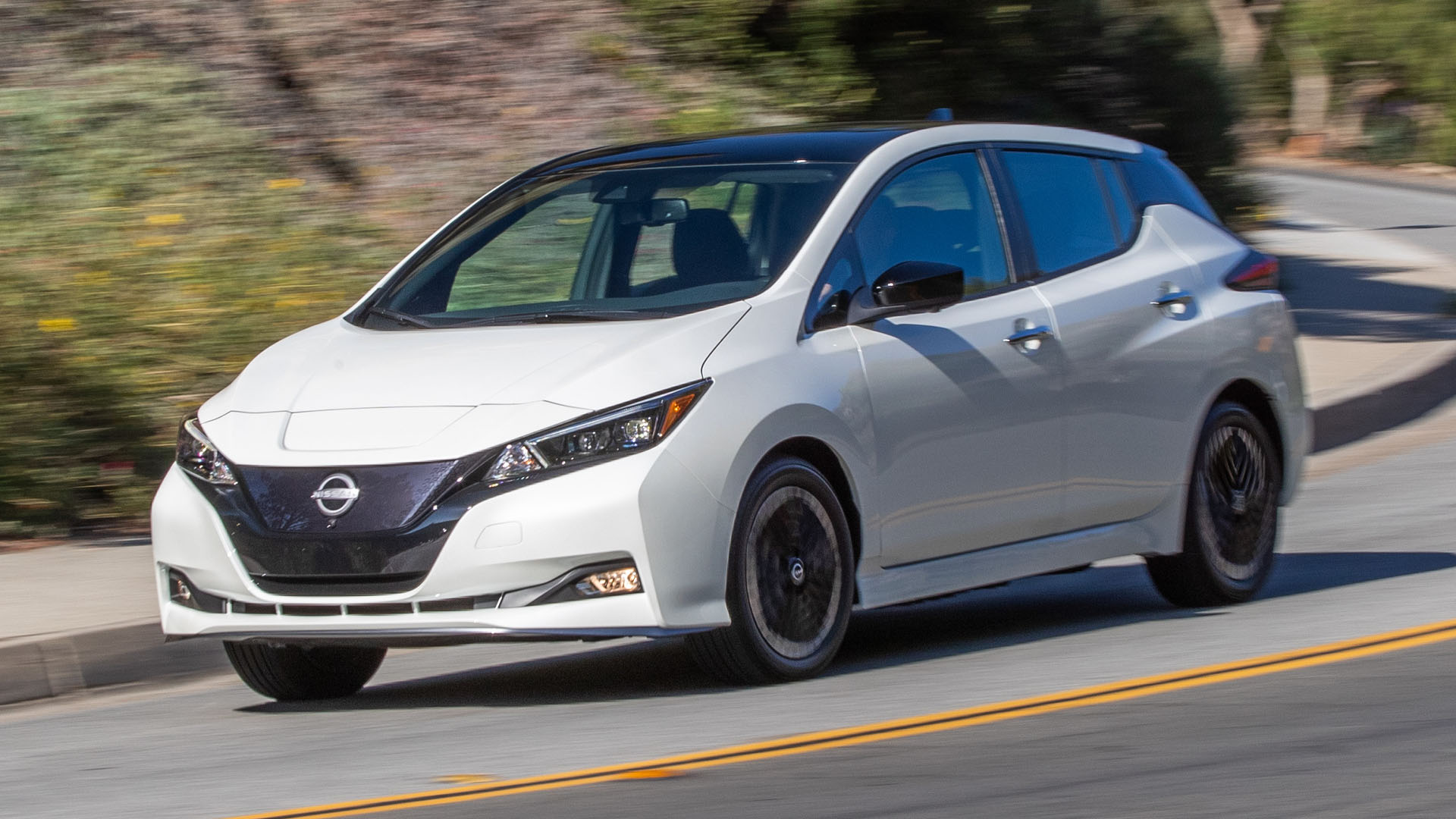

The Nissan Leaf, the first mass-market EV from a major automaker, is being phased out of production by mid-decade, according to a report from Automotive News on Thursday. The vehicle, which has been in production since 2010, was one of the pioneering electric cars to come to market along with the Tesla Model S. Citing anonymous sources, the AN report states the Leaf will be replaced by a vehicle, “more tuned to the needs of the modern EV buyer.” Nissan didn’t comment on the news to AN, refusing to speculate on the future of the Leaf, but did leave open the possibility of its return thanks to “renewed interest” in EV availability.
The Leaf is in its second generation, which was released back in 2018. Its first generation entered the market before the shift to electrification had gained much traction. It has been consistently one of the cheapest if not the cheapest electric vehicle on sale in the United States for some time. Its outdated air-cooled battery, however, can cause its already limited range—226 miles in its longest-legged spec—to fluctuate considerably.
The Japanese automaker has plans to release 15 new electric vehicles by the end of the decade. Currently, Nissan has just one other EV teed up in the hot crossover segment, the Ariya. Indeed it’s likely that the Leaf’s time is limited partly because it’s a hatchback. When Chevy unveiled its updated Bolt, for instance, it was careful to include a lifted EUV version of the hatch in order to address this market shift. Nissan didn’t have the willingness to invest in the Leaf platform to make something like that happen, according to an anonymous former executive at the automaker speaking to AN: “You couldn’t with a straight face say, ‘Hey, I need another billion dollars to update the Leaf.'”
We’ve reached out to Nissan to get more information, but we haven’t yet heard back.
Email the author at peter@thedrive.com